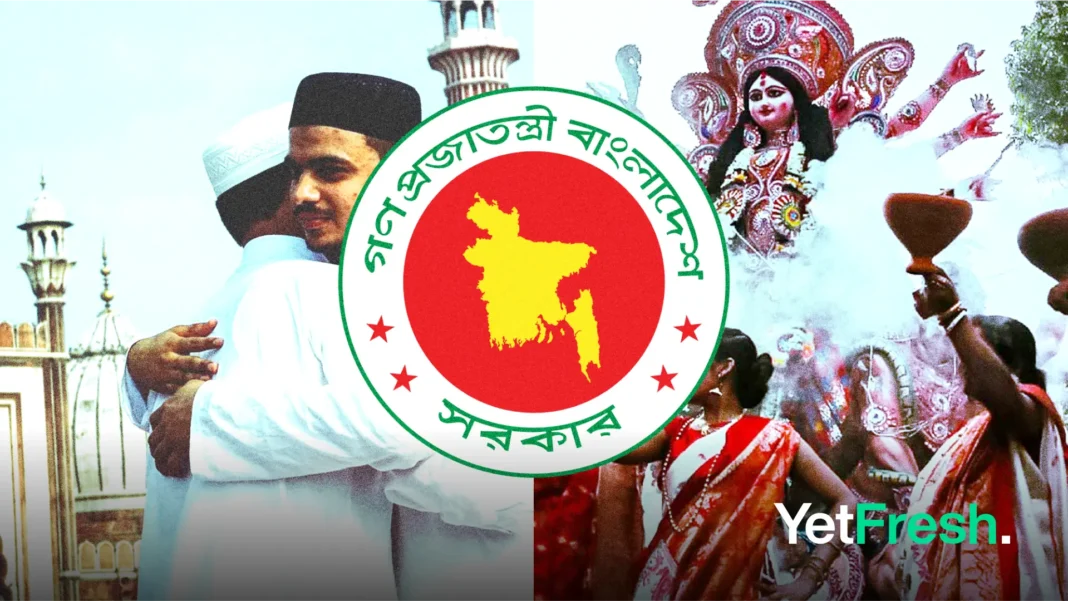No time to read? Just listen to the news!
TL;DR:
- Bangladesh’s interim government approves extended public holidays for Eid-ul-Fitr (5 days), Eid-ul-Adha (6 days), and Durga Puja (2 days) in 2025.
- Chief Adviser Muhammad Yunus presides over the advisory council meeting, finalizing the new holiday schedule.
- Two days of each Eid celebration will be official public holidays, with the remaining days declared through executive orders.
- The decision reflects the government’s recognition of the cultural and religious significance of these festivals in Bangladesh.
The interim government of Bangladesh has announced an extension of public holidays for major religious festivals in 2025. The decision, approved by the advisory council on October 17, 2024, will see longer breaks for Eid-ul-Fitr, Eid-ul-Adha, and Durga Puja celebrations next year.
Chief Adviser Muhammad Yunus presided over the council meeting at the Chief Adviser’s Office, where the new holiday schedule was finalized. According to the announcement, Eid-ul-Fitr will now have a five-day holiday, marking a significant increase from the current three-day break. Similarly, Eid-ul-Adha will be celebrated with a six-day holiday, providing an extended period for festivities and family gatherings.
The holiday extension also includes Durga Puja, which will now be observed with a two-day break. The general holiday for Durga Puja will fall on Bijoya Dashami, with an additional holiday on Nabami declared through an executive order.
For both Eid celebrations, two days will be designated as official public holidays, while the remaining days before and after the festivals will be declared holidays through executive orders. This approach allows for flexibility in accommodating the lunar calendar-based dates of these Islamic festivals.
The decision to extend these holidays reflects the government’s recognition of the cultural and religious significance of these festivals in Bangladesh. It also addresses the longstanding practice of extending holidays through executive orders, which has been common in recent years.
This move is expected to be welcomed by citizens, as it provides more time for religious observances, family reunions, and cultural celebrations. However, it may also have implications for businesses and the economy, which will need to adjust to the extended holiday periods.
As Bangladesh prepares for these extended celebrations in 2025, the government’s decision underscores the importance of balancing religious and cultural traditions with the country’s economic and administrative needs.




